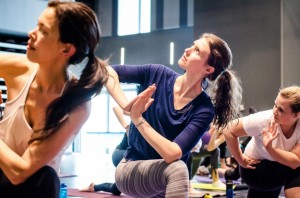Equilibrium is defined as a state of physical balance, a state that we spend the majority of our lives fighting to obtain. All cultures, sciences, psychologies, and religions have established guidelines to define and measure this balance.
However, I ask: What is equilibrium in essence?
From the moment we are born, we are sponges to our surroundings, accumulating helpful and unhelpful methods to perceive ourselves and the world around us. Ideally, we hope to develop healthy levels of self-worth, a sense of grounding, and connection through meaningful relationships. However, this ideal is rare, and more often we develop deep core beliefs – such as fears of failure, abandonment, and rejection – that create a constant source of internal chaos.
This internal chaos can take many different forms; for some, it is a silent buzzing, for others a screaming force. For all, it is a form of internal drama, which can be understood in terms of fear, anxiety, depression, dissatisfaction, low self-esteem, and anger. We tend to try to balance this internal drama through creating external drama, which most often takes shape in the form of conflict, the projection of our fears onto others, overexertion of our bodies, and overachievement through perfectionism.
It is understandable, then, that we become overly driven, overly harsh on our bodies, and that we project our fears and insecurities onto those around us. We are simply trying to feel more balanced. Through matching our internal chaos with external drama, we feel a false sense of equilibrium.
We have ideals of wanting to enjoy simplicity, peace and calm; however, how often is it that we find ourselves feeling more unsettled when we are not overly exerting ourselves, physically, mentally and/or emotionally? A simple example can be seen in our yoga practice, where we are often drawn to the yang/physical exertion of the practice, yet feel overwhelmed in the more yin/restful aspects of the practice. The energetic vigor, the push, feels good, yet sitting with ourselves throughout the practice is often challenging.
Our practice of yoga can be a useful tool in observing this false sense of equilibrium we have developed as a coping strategy. Through the practice of acceptance, compassion, and observation, we learn that there is no shame or blame required for the patterns we observe within ourselves. Yoga can teach us to address our deep core beliefs- these fears of failure, rejection and abandonment- that are at the root of our need for external drama.
Each day is an opportunity to use our mats as a place of self-exploration, whereby we can observe our core beliefs, our internal dialogue, our emotions and our physical tensions. It is an opportunity for us to work on ourselves, to sit with ourselves, even –and most importantly – when we want to run. Over time, this self-development allows us to feel more comfortable in our own bodies, and more connected to our own selves. Gradually, we open up to the possibility of being less dependent on the need for the external buzz. We slowly observe that our tendencies toward conflict, drama, overexertion, and overachievement aren’t as necessary as they once were. We can seek solace, and sit more comfortably in it.
This is equilibrium.












